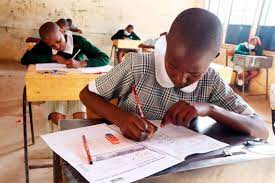Worldwide, nearly 130 million girls are out of school globally. With more than half of the girls, living in countries affected by conflict, this in accordance to the data released by the United Nations. Education gender parity is still an uphill task. With 2/3 of the 773 million adults who are illiterate are women, UNESCO reports. The organisation also states that 2/3 of countries globally young women make up only 25% of students in engineering and ICT.
A new report by UNCIEF released on the 14th of September, “Solving the equation: Helping girls and boys learn mathematics.” It finds that boys have up to 1.3 times the odds of obtaining mathematics skills than girls. With sexisms and gender stereotypes becoming the main barriers for the girls to obtain the skills. This stereotypes are often held by teachers, parents, and peers regarding girls’ innate inability to understand mathematics are contributing to the disparity.
“Girls have an equal ability to learn mathematics as boys what they lack is an equal opportunity to acquire these critical skills. We need to dispel the gender stereotypes and norms that hold girls back – and do more to help every child learn the foundational skills they need to succeed in school and in life.” said UNICEF Executive Director Catherine Russell.
UNICEF warns, “That children who do not master basic mathematics and other foundational learning may struggle to perform critical tasks such as problem solving and logical reasoning.” The importance of learning mathematics skills is that it; strengthens memory, comprehension and analysis.
To improve the quality of education in our society, we need to take immediate action. “With the learning of an entire generation of children at risk, this is not the time for empty promises. To transform education for every child, we need action and we need it now,” said Russell.







